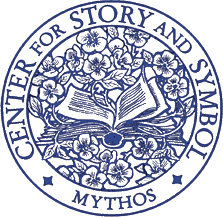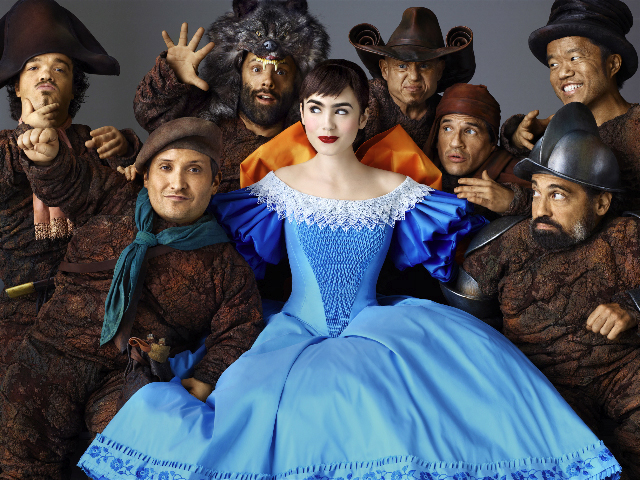
Register Articles Joseph Campbell Search
This is an archived course that is not offered at this time. The description will be updated if presented in the future.
The mythic imagination comes alive when we contemplate movies that have influenced us. Our emotional reactions to films can stimulate significant psychological work. Those on the inner journey can reflect on how elements of a story parallel their own discoveries. The awareness aroused by movie can be used effectively in therapy and for self-care.
This is a day on using movies for inner work. We do not watch films, but will discuss key scenes from the Godfather series and several productions of the Snow White story. Exploring very different genres allows us to demonstrate the wide range of cinematherapy applications.
Part of the movie-going ritual is to share our reactions with others. This is often a source of deep conversation about major life issues. We can find common ground with friends and acquaintances in discussing movies. All opinions are worthy of consideration. In therapy, this egalitarian conversation offers an opportunity to have a cultural discussion with reduced likelihood of defensiveness.
Like the images in dreams, films can reveal our inner dynamics. Cinema provides windows to the unconscious. Seeing movies as dreams can help us take ownership of unclaimed resources within. This course demonstrates the use of dream analysis methods with films. These techniques are useful with clients who do not bring dreams, as well as for studying the personal meanings of our own favorite movies.
Symbolism can be studied to grasp nuances of inner dynamics. The various characters in the drama can be seen as archetypes, representing diverse personal qualities. Their interaction reflects our inner complexity. A plot can reveal the major challenges of a life journey. Family stories invite us revisit personal origins. Such dramas can also represent tensions within an individual. The resolution of conflicts in a story may point toward progress in the task of emotional integration.
The focus of this course is not entirely on helping others. Even those who have done extensive inner study will have occasional need to locate missing feelings and re-establish wholeness. By projecting our issues onto a drama, we are able to externalize our internal process briefly. It is clear we are not alone in experiencing the issues depicted on screen. Everyone needs to reconnect with unfelt dimensions, especially in stressful times when we tend to disconnect. This form of psychological reflection helps us clarify who we can become, and embrace our internal beauty, depth, and presence.
Identify how plot stages mirror key development tasks.
Demonstrate how scenes from movies can be used to clarify specific life challenges.
Explain the use of dream analysis methods to draw insights from favorite films.
This seminar is taught at the introductory level and requires no advance preparation. However, participants are provided with a recommended reading list as part of their class materials.
The material is presented at an introductory level, requiring no background in mythic studies, narrative theory, or Jungian psychology.
The following CE credits are available:
Psychology, LMFT, LCSW, LPCC, Ed Psych, NBCC : 6 CE hours
Nursing : 7 hours
Most teachers must get credits approved by their school administration. Center courses meet the requirements in most states. Contact us if you need more information about receiving credit in your state.
Select a seminar from the Current Course Offerings
Register online or call the Center at 805-687-7171

Jonathan Young, PhD is a psychologist (PSY10231) with an international online practice. He teaches at the Pacifica Graduate Institute in Santa Barbara. His books and articles focus on personal mythology. Dr.Young assisted mythologist Joseph Campbell at seminars and was founding curator of the Joseph Campbell Archives and Library. He is currently featured in several documentary series on the History Channel.
Anne Bach, M.S., MFT 38891 is a specialist in uses of writing in psychotherapy. She gives presentations on creativity as inner work at major conferences, and lectures widely on psychological dimensions of expressive writing. She also appears in memoir drama performances for various theater groups, including the Marsh Stage in Berkeley. Her clinical background includes poetry therapy with seriously mentally ill patients.
Dr. Young also gives frequent media interviews, public talks, workshops, and in-service trainings throughout the U.S. and internationally.


Zoom link goes live at 9:30 a.m., California time - Seminar 10 a.m. to 5 p.m.
- The cinema narrative as window to the unconscious
- Gaining distance to reflect on pressing problems
- How adult psychological challenges are presented in movie plots
- Tapping resilience by identification with characters
- Please return on time
- Mythological understanding of the main genres of movies
- Using films like dreams - as mirrors of adult issues
- Withdrawing identification with dysfunctional narratives
- Selecting appropriate videos for homework
- Limits and cautionary considerations
Galipeau, Steven A. (2001) The Journey of Luke Skywalker: An Analysis of Modern Myth and Symbol. LaSalle, IL: Open Court Pub
Hauke, Christopher & Ian Alister (2001) Jung & Film: Post Jungian Takes on the Moving Image. New York: Brunner/Mazel
Henderson, Mary S. (1997) Star Wars: The Magic of Myth. New York: Bantam Books
Hesley, John W. and Hesley, Jan G. (1998) <Rent Two Films and Let's Talk in the Morning: Using Popular Movies in Psychotherapy. New York: John Wiley & Sons
Hill, Geoffrey Michael (1992) Illuminating Shadows: The Mythic Power of Film. Boston: Shambhala
Hockley, Luke, (2001) Cinematic Projections: The Analytical Psychology of C. G. Jung and Film TheoryCinematic Projections: The Analytical Psychology of C.G.Jung and Film Theory. Luton, The Netherlands: University of Luton Press
Horenstein, Mary Ann et al. (1994) <Reel Life/Real Life: A Video Guide for Personal Discovery. Kendall Park, NJ: Fourth Write Press
Huss, Roy (1986) The Mindscapes of Art: Dimensions of the Psyche in Fiction, Drama, and Film. Rutherford, NJ: Fairleigh Dickinson University Press
Iaccino, James F. (1994) Psychological Reflections on Cinematic Terror: Jungian Archetypes in Horror Films. Westport, CT: Praeger
Iaccino, James F. (1998) Jungian Reflections Within the Cinema: a Psychological Analysis of Sci-fi and Fantasy Archetypes. Westport, CT: Praeger
Kenevan, Phyllis Berdt (1999) Paths of Individuation in Literature and Film: a Jungian Approach. Lanham, MD: Lexington Books
Marsh, Clive & Gaye Ortiz (Eds.) (1998) Explorations in Theology and Film: Movies and Meaning. Oxford, UK: Blackwell.
Martin, Joel W., & Conrad E. Ostwalt, Jr. (Eds.) (1995) Screening the Sacred: Religion, Myth, and Ideology in Popular American Film. Boulder, CO: Westview Press
Rogers-Gardner, Barbara (1992) Jung and Shakespeare: Hamlet, Othello, and The Tempest. Wilmette, IL: Chiron Publications
Snider, Clifton (1991) The Stuff That Dreams Are Made On: A Jungian Interpretation of Literature. Wilmette, IL: Chiron Publications
Solomon, Gary (1995) The Motion Picture Prescription. Santa Rosa, CA: Aslan Publishing
Solomon, Gary (2001) Reel Therapy: How Movies Inspire You to Overcome Life's Problems. New York: Lebhar-Friedman Books
Sturdevant, Cathie Glenn (1998) The Laugh & Cry Movie Guide: Using Movies to Help Yourself through Life's Changes. Larkspur, CA: Lightspheres
Sugg, Richard P. (1993) . Evanston, IL: Northwestern University Press
Vogler, Christopher (1998) The Writer's Journey: Mythic Structure for Writers. 2nd Ed. Studio City, CA: Michael Wiese Productions
Voytilla, Stuart (1999) Myth and the Movies: Discovering the Mythic Structure of 50 Unforgettable Films. Studio City, CA: Michael Wiese Productions